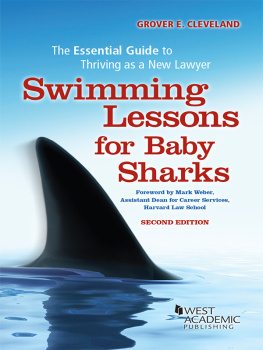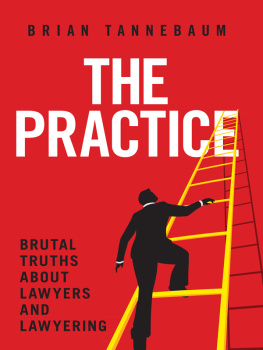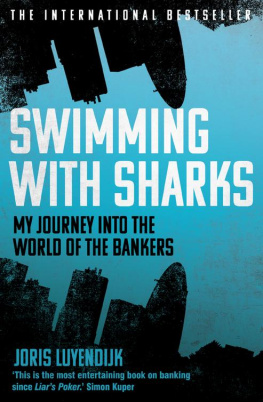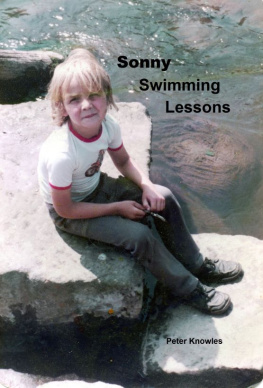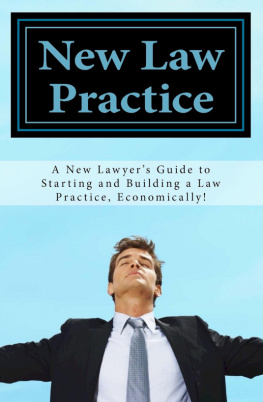Landmarks
Page list

WEST ACADEMIC PUBLISHINGS
LAW SCHOOL ADVISORY BOARD
__________
JESSE H. CHOPER
Professor of Law and Dean Emeritus,
University of California, Berkeley
JOSHUA DRESSLER
Distinguished University Professor, Frank R. Strong Chair in Law
Michael E. Moritz College of Law, The Ohio State University
YALE KAMISAR
Professor of Law Emeritus, University of San Diego
Professor of Law Emeritus, University of Michigan
MARY KAY KANE
Professor of Law, Chancellor and Dean Emeritus,
University of California, Hastings College of the Law
LARRY D. KRAMER
President, William and Flora Hewlett Foundation
JONATHAN R. MACEY
Professor of Law, Yale Law School
ARTHUR R. MILLER
University Professor, New York University
Formerly Bruce Bromley Professor of Law, Harvard University
GRANT S. NELSON
Professor of Law, Pepperdine University
Professor of Law Emeritus, University of California, Los Angeles
A. BENJAMIN SPENCER
Earle K. Shawe Professor of Law,
University of Virginia School of Law
JAMES J. WHITE
Robert A. Sullivan Professor of Law Emeritus,
University of Michigan
i
SWIMMING LESSONS FOR BABY SHARKS
The Essential Guide to Thriving as a New Lawyer
Second Edition
Grover E. Cleveland

ii
The publisher is not engaged in rendering legal or other professional advice, and this publication is not a substitute for the advice of an attorney. If you require legal or other expert advice, you should seek the services of a competent attorney or other professional.
2010 Grover E. Cleveland
2016 Grover E. Cleveland
LEG, Inc. d/b/a West Academic
444 Cedar Street, Suite 700
St. Paul, MN 55101
1-877-888-1330
West, West Academic Publishing, and West Academic are trademarks of West Publishing Corporation, used under license.
Printed in the United States of America
ISBN: 978-1-63460-686-8
iii
To Foster Pepper PLLC with special thanks to Steve DiJulio who taught me to practice law and to Lori Nomura who made it a blast.
With sincere thanks to Mark Weber for writing the Foreword and to Christie True and Bob Burns for the time to write the Second Edition.
v
HOW TO USE THIS BOOK
___________
This book is designed to provide relevant information quickly. The anecdotes illustrate the lessons in the bulleted tips that follow. Each section is a stand-alone lesson so that you can go directly to the information that you need for your particular situation. Some points appear in more than one chapter. Not surprisingly, those lessons are particularly important. Information on programs and additional resources for new lawyer career success are available at http://www.swimminglessonsforbabysharks.com/.
vii
FOREWORD
___________
By Mark Weber, Assistant Dean for Career Services, Harvard Law School
The Need for Practical Skills
The world was just emerging from financial collapse when the first edition of Swimming Lessons for Baby Sharks debuted in 2010. The Great Recession had profound impacts on the legal profession. Corporate and government legal departments, facing budget reductions, froze hiring and cut jobs. Venerable law firms rescinded job offers and instituted layoffs. Some collapsed.
The effects of the downturn have endured. The Altman Weil Law Firms in Transition survey asks the Managing Partners or Chairs of hundreds of firms about their perspectives on the state of the legal market. In recent years, more than 90 percent of the respondents have identified more price competition and focus on improved practice efficiency as permanent trends.
Since its publication, Swimming Lessons for Baby Sharks has become required reading at some of the largest law firms in the world. The lessons in this Second Edition of the book remain critical for those leaving law school and entering the legal field.
The Great Recession upended the traditional law firm approach for teaching new lawyers practical skills. For years, clients paid the cost of on-the-job training for new lawyers. But with the onset of the economic downturn, companies scrambled to find ways to cut expensesincluding costs for outside counsel. For many companies, one way to reduce legal expenses was to request that firms refrain from using new lawyers on their matters.
Thus, practice-ready graduates and new lawyers who could hit the ground running became mantras at law firms. Legal employers called on law schools to increase practical skills training. Law schools have stepped up in a variety of ways. Harvard, for example, instituted a month-long problem-solving workshop for 1Ls, and the career services office has embraced technology and created a robust library of podcasts on practice area and career success topics.
viii
Law firms and other legal employers also responded. As the economy has improved, most law firms have expanded their formal training programs.
But with cost pressures on firms continuing, new lawyers also have a role in their career development. Today, young lawyers in private practice must focus more on efficiency than their predecessors did. And firms expect associates to work on business development much earlier in their careers.
About Swimming Lessons for Baby Sharks
Swimming Lessons for Baby Sharks includes important advice to help new lawyers meet these challenges and get off to a strong start.
The second edition begins with an expanded section on bar review preparation. The update also includes new material on project management and business development.
Other chapters cover topics such as building relationships, performing high-quality work efficiently, and developing skills in client service.
The chapters on law firm economics and time management offer information considered vital to law firms but that typically does not have a place in a legal curriculum. Issues such as law firm economics can be completely foreign to new graduates but undoubtedly have an impact on legal careers
For many new graduates, the material on mindset may be the most important. Beginning a legal career requires a shift in perspective for most students. In law school, students are essentially the clients. The law school is there to serve them. Even when performing stellar work in a class, students are not required to provide value to professors. And summer associate programs rarely reflect full-time practice at a firm. When new lawyers begin their careers, they often have to provide value and prove their worth for the first time in their lives. That transition can be jarring for the new associate and for the firm.
The hierarchy at firms can also seem foreign to young lawyers. A common expectation at firms is that new lawyers will treat senior lawyers as their clients. But that assumption is often something new lawyers do not understand.
ix
Starting out, a willingness to be humble, ask questions and build trust is critical. And if law students have not held a professional job, the expectations and norms at law firms can be unnerving. These unwritten rules can frustrate new graduates early in their careers.
Succeeding in a law practice depends on the ability of new lawyers to form relationships with more senior lawyers who will invest in their careers. Grovers book provides a roadmap to show new lawyers how to build trust and navigate the waters. Skills explained in this book help new lawyers provide more value, bolster their credibility, and produce work that makes senior lawyers comfortable assigning them more complex work. And doing more complex work is the way new lawyers enhance their own skills and expand their opportunities.

